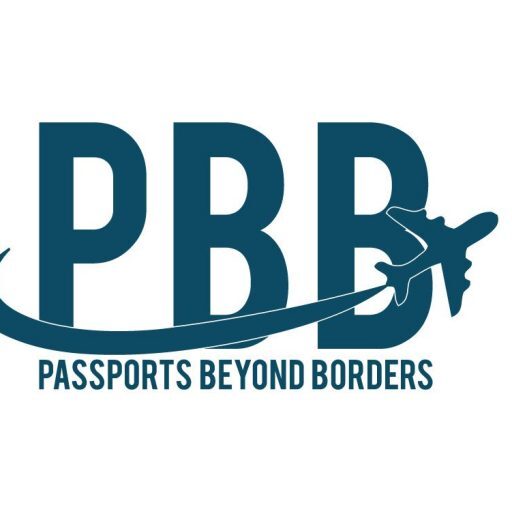You know the saying that “cheap things are not cheap”? As travel resumes this summer, so too will airline ticket scams. Airline ticket scams are not new, yet they continue to be on the rise. In this day with the possibility of obtaining cheap websites cloning the original domain name as well as creating a fake social media account, impersonation is easy. Scammers can now take up the identity of a travel agency or even an airline.
Though scams are widely prevalent with online bookings, you could even get scammed from a travel agency that has a well established and functional office. Caution is of the essence.
How do these scams work?

Source:Pexels.com
Here’s what the scenario would look like
- The passenger goes to a travel agency to purchase a ticket.
- The ticket is issued by a travel agent and payment is made either by cash or card. This works well when payment is made by cash except in cases where the management is (dubious too and) involved in the scam.
- The ignorant passenger goes to the airport and checks in and boards the flight.
- Travel agent calls passenger (from a customer care standpoint) to find out if the passenger is boarded. Once confirmed, the travel agent goes ahead and voids/cancels the ticket. Tickets can be cancelled in the system when the status is still shown as ‘O’ for Open. Once the status changes to ‘F’ meaning flown, the ticket can no longer be cancelled. It may be partially refunded later depending on the conditions of the ticket.
- The entire network involving the agent, cashier and accountant all get a cut from this dubious transaction.
- Such activities are very common with First and Business class tickets. However, this doesn’t exempt economy class tickets.
Another scenario
You search online for cheap flights and get a great deal with a major airline. You book the flight—either through the website or by calling a customer support number—and receive a confirmation message. However, when you look more closely at the email, you notice that you never actually received your ticket.
In another version of this scam, you book a flight on a travel website offering deals on airfare. You pay with your credit card like normal. Shortly after making the payment, you receive a call from the company saying that there’s been a sudden price increase or an extra charge to finalize your booking. This is something a legitimate company would never do! Beware.
Read Also
- 16 Things to consider before deciding to take an International Job
- Expat Interview – A guide to living in Malawi in 2021
How to Avoid Airline Ticket Scams

Source:Pexels.com
- Pay by Card Debit/Credit card for easy traceability. Scammers usually refuse card payments because these can be tracked. If you are dealing with an agent and they refuse card payment, it’s better to step back.
- Double-check the URL (for any spelling errors) before entering any sensitive information. Secure links start with “https://” and include a lock icon on the purchase page.
- Do not grant access to your computer to any agent you are on the phone with. They’d hack into your computer.
- Buy tickets from reputable travel agencies or directly from the airline. And also beware of 3rd party sites. Be suspicious of websites with no working customer service number and no physical address. Typos and grammatical errors can be indications of a scammer’s handiwork, too.
- Beware of calls from travel agents finding out what level of the boarding process you are(depicting excellent customer service). They may be tracking you just to know when to cancel/void your ticket.
- Beware of deals that look too good to be true. They most likely would be scams. Moreover, cheap things are not always cheap or such deals have hidden costs like baggage charges, seat charges etc or you might be called later indicating a price change. Be sure of what you are paying for.
- Avoid sending money via cash transfers to individuals. If you cannot attach a face/brand to whoever you are sending money for ticket payment to, do not.
- Ensure you have a valid flight ticket with a ticket number and booking reference(PNR) which can be confirmed with the airline before the travel date. There have been cases where travel agents hand over ticket reservations instead of valid tickets to ignorant passengers who get embarrassed at the airport.
- Ensure to have a valid proof of payment (e-)receipt, including a company logo, stamp, and authorized signature.
- When buying from a Travel agency, avoid dealing with a single individual. In a well-structured organization, there would be people to handle different aspects of the business. The person issuing the ticket shouldn’t be the same as receiving the cash. A lot of ticketing agents can be very dubious so beware of that.
- If you are dealing with a travel agency, if you can, it is better to buy your ticket in advance. Why? This is because tickets can be voided/cancelled within 24 hrs of being issued. Dubious travel agents can cancel the ticket within this time after they know you have safely boarded the flight.
Did you find these tips helpful? Let us know in the comment section how else your ticket scams can be avoided. If you have you been a victim of ticket fraud? Feel free to leave your comments in the comment section below.
You can follow PBB on Facebook, Twitter, and Instagram. Send your story ideas to info@passportsbeyondborders.com




Take notes at the time the incident occurred and jot down the names of the carrier employees with whom you dealt. Keep all of your travel documents ticket or confirmation, baggage check stubs, boarding pass, etc. Here are some helpful tips should you choose to write.
Voluntary Bumping Almost any planeload of airline passengers includes some people with urgent travel needs and others who may be more concerned about the cost of their tickets than about getting to their destination on time. DOT rules require airlines to seek out people who are willing to give up their seats for compensation before bumping anyone involuntarily. Here’s how this works.